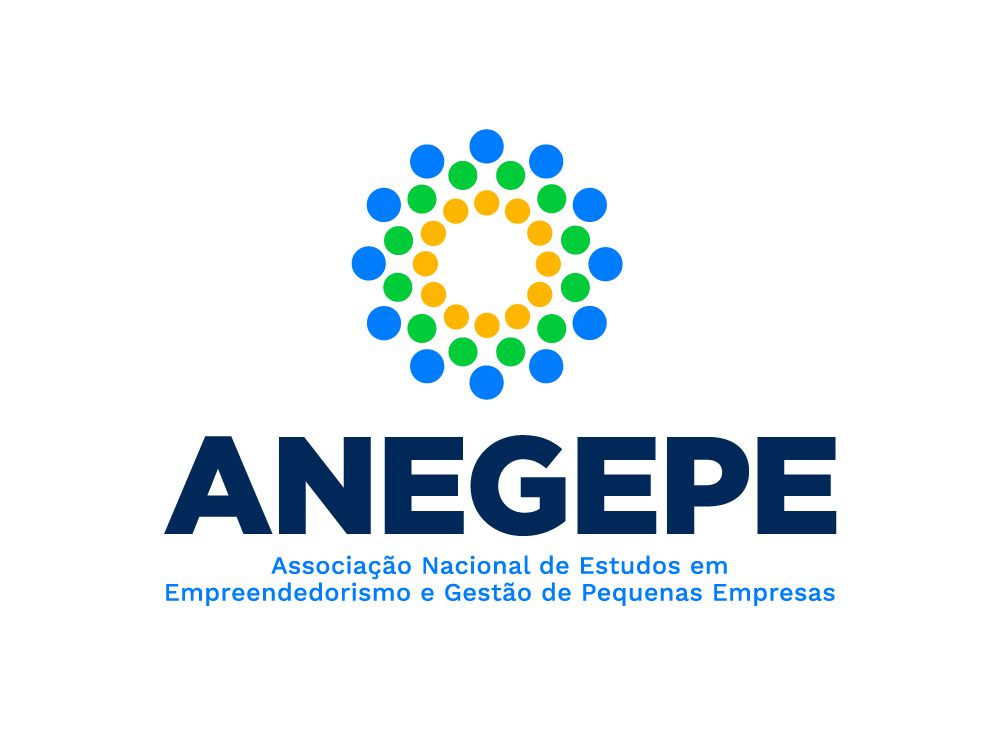Crescer é fácil? Você que pensa! – O caso da Jully Beleza e Makeup
DOI:
10.14211/ibjesb.e2228Palavras-chave:
Empreendedorismo, Crescimento de Empresas, Effectuation, CausationResumo
O caso de estudo relata as dificuldades encontradas pelos empreendedores Isabela e Daniel na implementação e crescimento da Jully Beleza e Makeup. A história da empresa, que surgiu a partir de um plano de negócio elaborado por Isabela, retrata as tradicionais barreiras enfrentadas por empreendedores no crescimento do negócio, como a falta de acesso à crédito e a baixa credibilidade por parte dos fornecedores. Embora a empresa tenha aproveitado um bom período de liderança no mercado e alto faturamento, os empreendedores se deparam com novos e peculiares desafios que afetam o crescimento da organização. A discussão do presente caso busca promover reflexões acerca das dificuldades encontradas pelos empreendedores no processo de crescimento de um negócio. Os dados para construção do trabalho foram coletados a partir de uma entrevista não-estruturada, realizada com os fundadores da empresa em questão. É indicada a aplicação do caso em disciplinas relacionadas ao desenvolvimento de competência e habilidades para formação empreendedora, tais como empreendedorismo, estratégia e jogos empresariais.
Classificação JEL: M00, M10, L26
Downloads
Referências
ABIHPEC. (2014). Panorama do setor da Indústria Brasileira de Higiene Pessoal, Perfumaria e Cosméticos. https://abihpec.org.br/site2019/wp-content/uploads/2021/05/Panorama_do_Setor_Atualizado_Abril-Rev3.pdf
Chandler, G. N., DeTienne, D., McKelvie, A., & Mumford, A. (2011). Causation and effectuation processes: A validation study. Journal of Business Venturing, 26, 375-390. https://doi.org/10.1016/j.jbusvent.2009.10.006
Combs, J. G., Michael, S. C., & Castrogiovanni, G. J. (2004). Franchising: A review and avenues to greater theoretical diversity. Journal of Management, 30(6), 907-931. https://doi.org/10.1016/j.jm.2004.06.006
Dobbs, M., & Hamilton, R. T. (2007). Small business growth: Recent evidence and new directions. International Journal of Entrepreneurial Behaviour and Research, 13(5), 296-322. https://doi.org/10.1108/13552550710780885
FIESP. (2017). O Financiamento das MPE no Brasil. https://bibliotecas.sebrae.com.br/chronus/ARQUIVOS_CHRONUS/bds/bds.nsf/843a3cb8bd1901b9dec713eb3cdbb260/$File/7754.pdf
Fisher, G. (2012). Effectuation, causation, and bricolage: A behavioral comparison of emerging theories in entrepreneurship research. Entrepreneurship Theory and Practice, 36(5), 1019-1051. https://doi.org/10.1111/j.1540-6520.2012.00537.x
IBGE. (2019). Instituto Brasileiro de Geografia e Estatística. https://cidades.ibge.gov.br/brasil/ce/barbalha/panorama
IPECE. (2017). Perfil Municipal 2017 – Barbalha. https://www.ipece.ce.gov.br/wp-content/uploads/sites/45/2018/09/Barbalha_2017.pdf
Machado, H. P. V. (2018). Crescimento de Empresas na Perspectiva de Pequenos Empreendedores de Base Tecnológica. Revista de Administração Contemporânea, 22(6), 817-840. https://doi.org/10.1590/1982-7849rac2018170255
Melo, P. L. de R., Borini, F. M., & Cunha, J. A. C. da. (2014). Percepções de valor e elementos estruturantes das microfranquias. Revista de Administração Contemporânea, 18(3), 328-350. https://doi.org/10.1590/1982-7849rac20141685
Morrison, A., Breen, J., & Ali, S. (2003). Small Business Growth Intention, Ability and Opportunity. Journal of Small Business Management, 41(4), 417-425. https://doi.org/10.1111/1540-627X.00092
Sarasvathy, S. (2001). Toward Causation and Effectuation: a Theoretical Shift From Economic Inevitability To Entrepreneurial Contingency. Academy of Management Journal, 26(2), 243-263. https://doi.org/https://doi.org/10.2307/259121
Publicado
Métricas
Visualizações do artigo: 4104 Caso de ensino downloads: 227 Notas de ensino downloads: 164 Case study (English) downloads: 127 Teaching notes (English) downloads: 103
Como Citar
Edição
Seção
Licença
Copyright (c) 2022 Ítalo Anderson Taumaturgo dos Santos, Halana Adelino Brandão

Este trabalho está licenciado sob uma licença Creative Commons Attribution 4.0 International License.
Autores que publicam nesta revista concordam com os seguintes termos:
- O(s)/A(s) autor(es)/autora(s) autorizam a publicação do texto na revista;
- A revista não se responsabiliza pelas opiniões, ideias e conceitos emitidos nos textos, por serem de inteira responsabilidade de seus autores/autoras;
- Autores/autoras mantêm os direitos autorais e concedem à revista o direito de primeira publicação, com o trabalho publicado sob a Licença CC BY 4.0
, que permite o compartilhamento do trabalho com reconhecimento da autoria e publicação inicial nesta revista;
- Autores/autoras são permitidos e encorajados a postar seu trabalho (Versão submetida, Versão aceita [Manuscrito aceito pelo autor/autora] ou Versão publicada [Versão do registro]) online, por exemplo, em repositórios institucionais ou preprints, pois isso pode levar a trocas produtivas, bem como a citações anteriores e maiores de trabalhos publicados. A REGEPE pede como condição política para os autores/autoras que indiquem/vinculem o artigo publicado com DOI. Veja o Efeito do Acesso Livre.















